People and localities have high expectations for the Nghe An OCOP Program.
(Baonghean) - Nghe An province has just approved the "One Commune One Product" (OCOP) program project for the 2019-2020 period, with a vision to 2030, which will develop many typical products that meet standards to target domestic and international markets. Regarding this issue, there are many opinions from representatives of all levels, sectors, manufacturers and households.
* Mr. NGUYEN VAN HANG - Deputy Chief of the Provincial Office of New Rural Development Coordination.
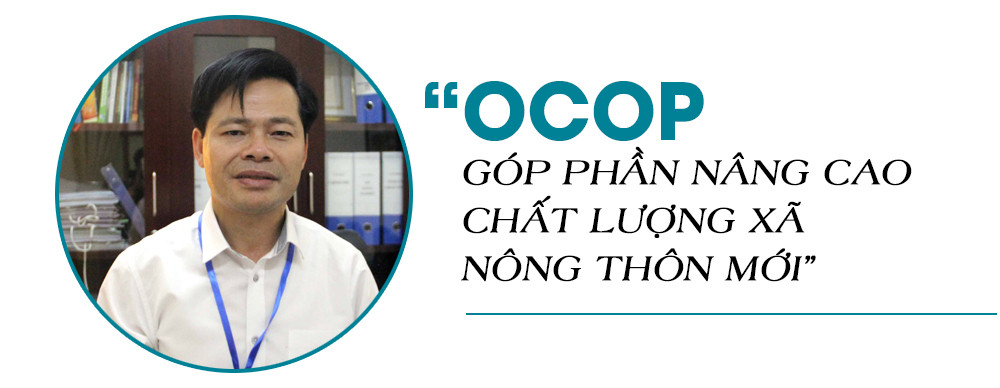 |
In the process of implementing the National Target Program on New Rural Development, localities have paid attention to developing a number of agricultural, forestry and fishery products with specific characteristics. However, most of the products in rural areas are still small-scale and have no brand, so they lack competitiveness.
The essence of the OCOP Program is to improve the quality of products for localities, thereby reaching out to the large market. Therefore, the OCOP Program will make an important contribution to local agricultural, forestry and fishery products, especially in the period when localities are building new rural communes and improving them to model new rural areas.
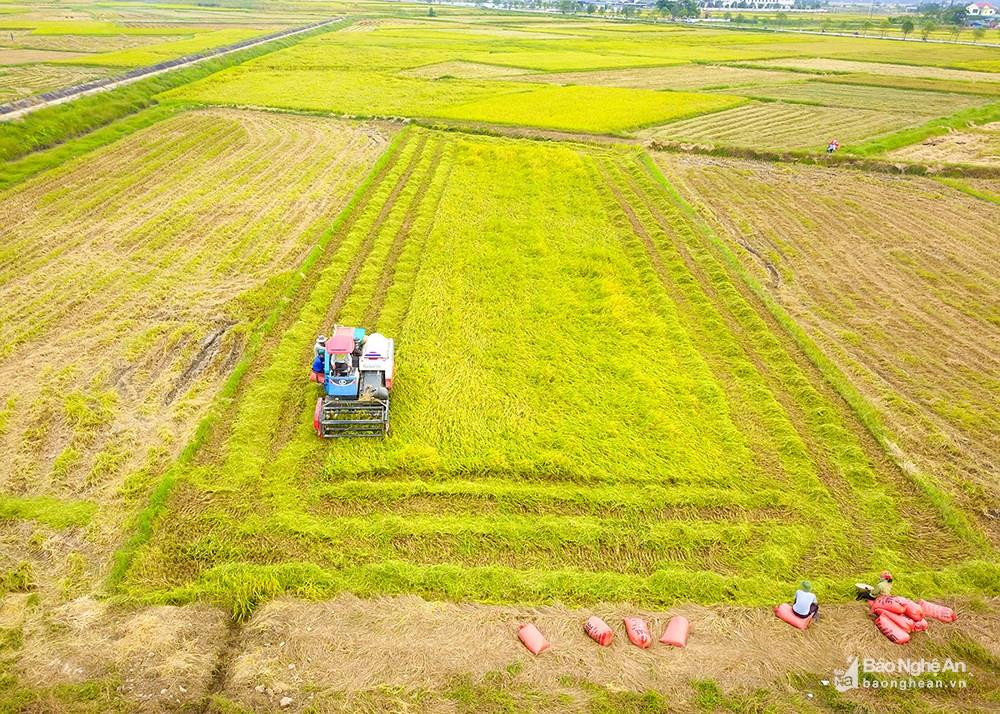 |
| Golden season in the fields of Kim Lien commune (Nam Dan). Photo by Trung Ha |
 |
According to the province's "One Commune One Product" Project, the Provincial Cooperative Union has proactively advised the Provincial People's Committee to approve the Project to establish a Cooperative Development Support Fund and soon put it into operation to support cooperatives in their need for loans to develop production and business.
Organize vocational training for rural workers, contribute to improving skills, create many products for cooperatives and craft villages that ensure standards and regulations according to market requirements and the OCOP Program such as: rattan and bamboo weaving, brocade weaving, civil and fine art carpentry, mushroom growing, embroidery...
Currently, the Provincial Cooperative Union is advising the Provincial People's Committee to develop a project "Building and developing a chain of clean and safe agricultural product stores associated with supporting the consumption of agricultural products and food for cooperatives and craft villages in Nghe An province in the period of 2019 - 2025, with a vision to 2030". Accordingly, each year, support will be provided to build 2-3 clean and safe agricultural product stores associated with supporting the consumption of agricultural products and food.
* Mr. LE VAN KHANH - Deputy Head of Department of Basic Science and Technology Management, Department of Science and Technology.
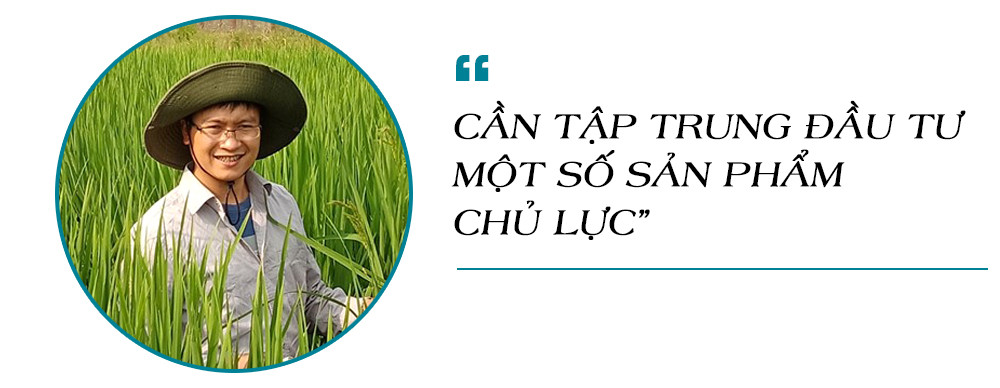 |
In recent times, product selection, product development and orientation have generally been inconsistent. Most localities have not focused on developing core products but are scattered and scattered. The capacity of production and business organizations is still limited, production organization, connection and market development are still limited. On the other hand, there are very few products that are deeply processed, the products are still monotonous, and the scale is generally small.
The OCOP program is being implemented, hoping that traditional products and local specialties will be given wings, given strength, and become valuable goods for wide domestic consumption and export.
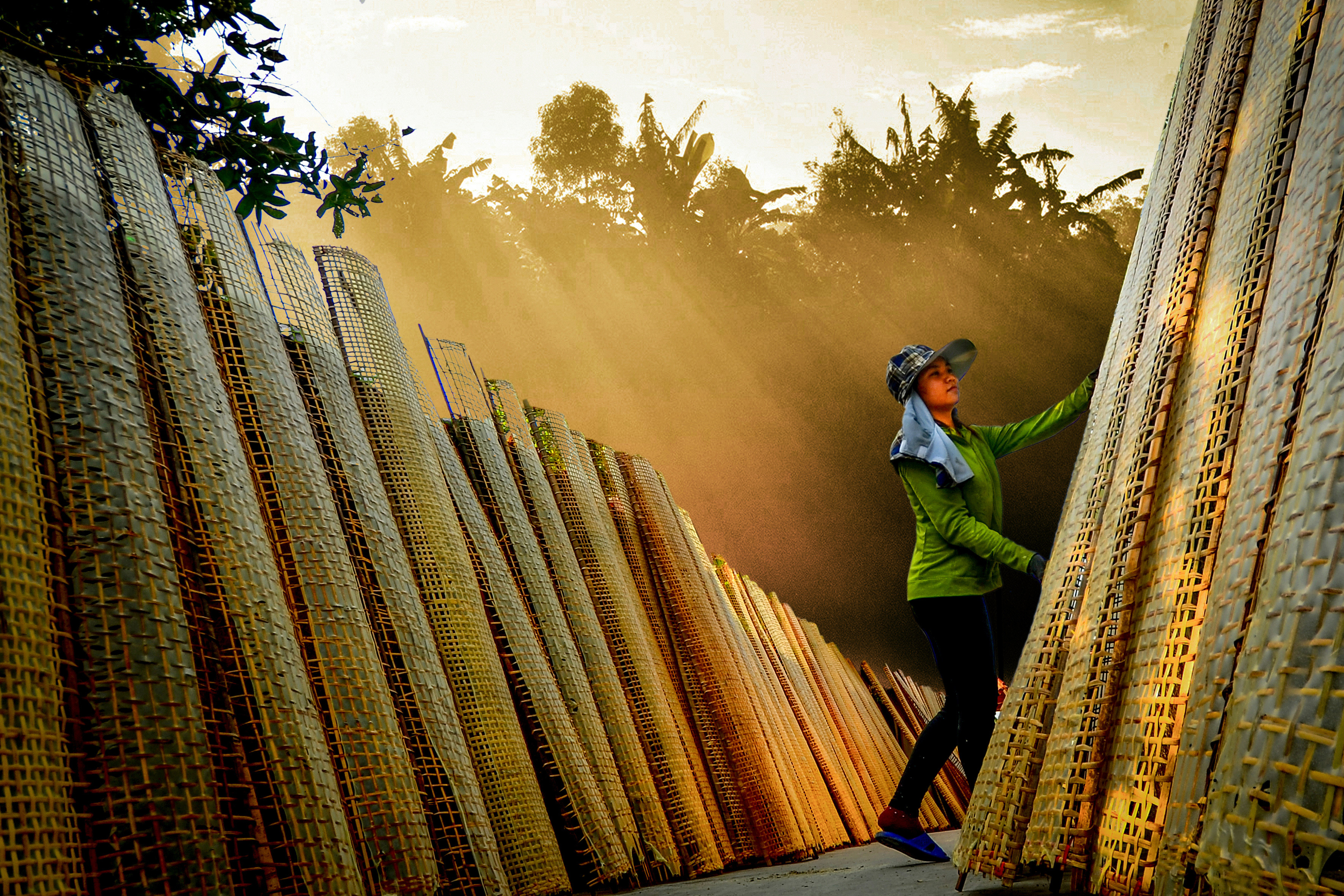 |
| Dien Ngoc spring roll village (Dien Chau). Photo: Document - Tran Canh Yen |
To achieve that expectation, localities need to select and focus on investing in developing a number of key products; persistently implement the value chain model for a number of priority products; have specific policies for each product; prioritize resources in building and developing brands to maximize local strengths.
In addition, there needs to be planning in developing raw materials and products; policies to support certain stages (such as varieties, processing, and branding) to encourage the organization of production and trading of traditional products and local specialties.
* Ms. TRAN THI MY HA - Head of Trade Management Department, Department of Industry and Trade.
 |
One of the issues currently being raised when implementing the OCOP Project is the output for the product. To do this well, in my opinion, we need to focus on the following issues:
The first,Strengthen communication and promotion of OCOP products.
Monday,Promote OCOP product development activities associated with tourism activities, promote products to a wide range of domestic and foreign customers.
Tuesday,Improve the efficiency of OCOP product fairs and exhibitions, widely spread products to consumers, and support product promotion and effective market search.
Wednesday,effectively carry out trade connection activities, connecting supply and demand between regions, inter-regions and within the country. Find ways for OCOP products to be distributed and present on the shelves of supermarket systems... This will be a real opportunity for OCOP product output in a sustainable way.
*Mr. LE VAN HANH - mushroom farm in hamlet 12, Son Thanh commune, Yen Thanh district.
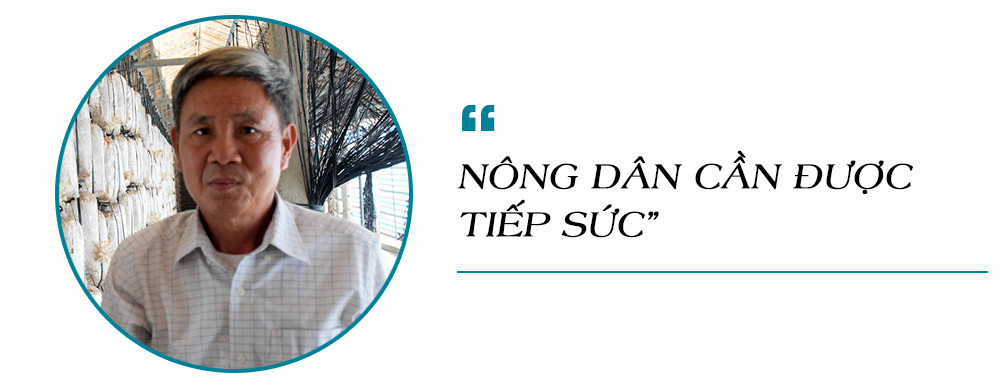 |
I have a mushroom farm with 8 production facilities. Most of the mushroom production steps are done by modern production lines and machines; the mushroom growing and processing areas are built spaciously, airy, and ensure hygiene.
The family's mushroom products are only in the preliminary processing stage to supply customers with fresh food, and have not been purchased by the factory for processing, nor have they reached supermarkets or clean vegetable stores, so the value is not high.
Hopefully, when implementing the “One Commune One Product” Program, mushroom growing has the opportunity to develop sustainably. I hope to be supported in investment production, and to link together to develop products.
Most importantly, all levels and sectors create conditions for mushroom growing to follow the production - processing - consumption value chain, and deep processing of mushroom products (dried mushrooms, mushroom powder, raw materials for cosmetics, pharmaceuticals, etc.).
*Mr. TRAN VAN DANG - Deputy Head of Phu Loi Fish Sauce Seafood Processing Village - Quynh Di, Quynh Luu District. |
Currently, Phu Loi fish sauce production village has 3 existing problems that need to be overcome soon.
The first,Environmental pollution has not been resolved. Although the locality has built a wastewater drainage system, the wastewater after processing is discharged directly into the Mai Giang River, causing pollution. Therefore, it is necessary to build a wastewater tank and filter it before discharging it into the river.
Monday,Of the 130 households specializing in fish sauce production, only 22 have been granted food safety certificates by specialized agencies. Nearly 110 remaining households are not qualified for food safety certificates and face difficulties in selling their products. Therefore, in addition to making efforts to overcome limitations in production, these households need to be trained by authorities and sectors to improve their knowledge and support procedures, and be granted food safety certificates, which are the "passports" for fish sauce on the market.
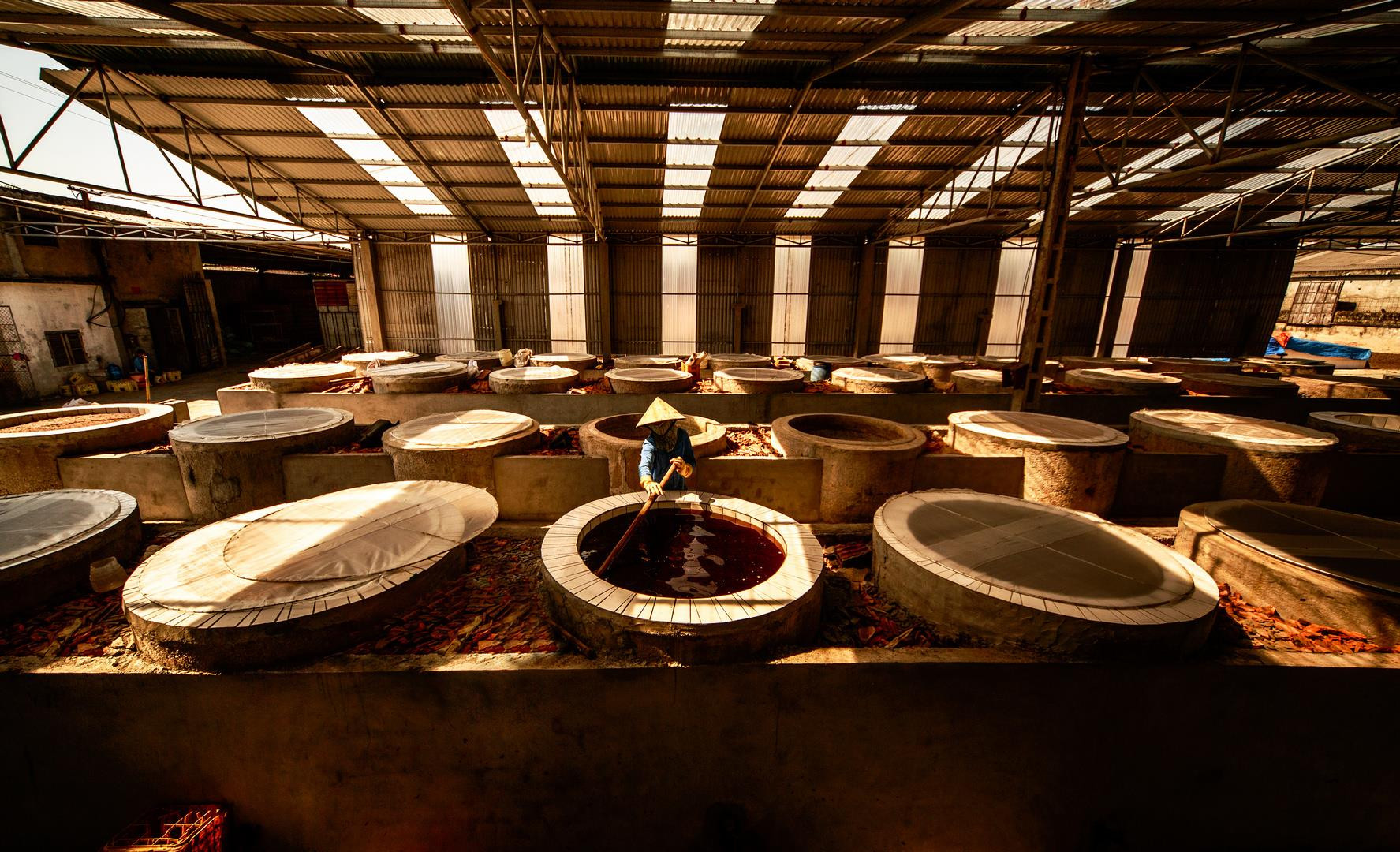 |
| Traditional fish sauce village in Dien Chau. Photo: Document - Hai Vuong |
Tuesday,Craft villages do not have clean water for production, households have to buy water at high prices to use for processing fish sauce, increasing production costs, affecting product prices.
Hopefully when the locality implements the OCOP Project, the shortcomings of the craft villages will be overcome.*Mr. LE MINH TUAN - Dien Chau Shrimp Association.
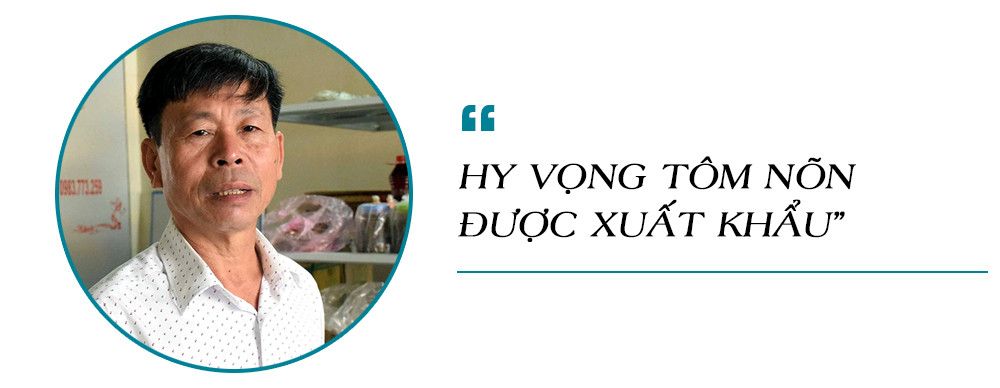 |
Peeled shrimp is a typical product of Dien Chau district, has been granted a collective trademark and trademark protection. The peeled shrimp processing industry creates jobs and increases income for hundreds of workers in Dien Ngoc commune.
However, the shrimp processing industry has long been applying outdated technology, shrimp is dried in small capacity wood-fired ovens, causing environmental pollution, the finished product is not attractive, and the shrimp quality is not guaranteed.
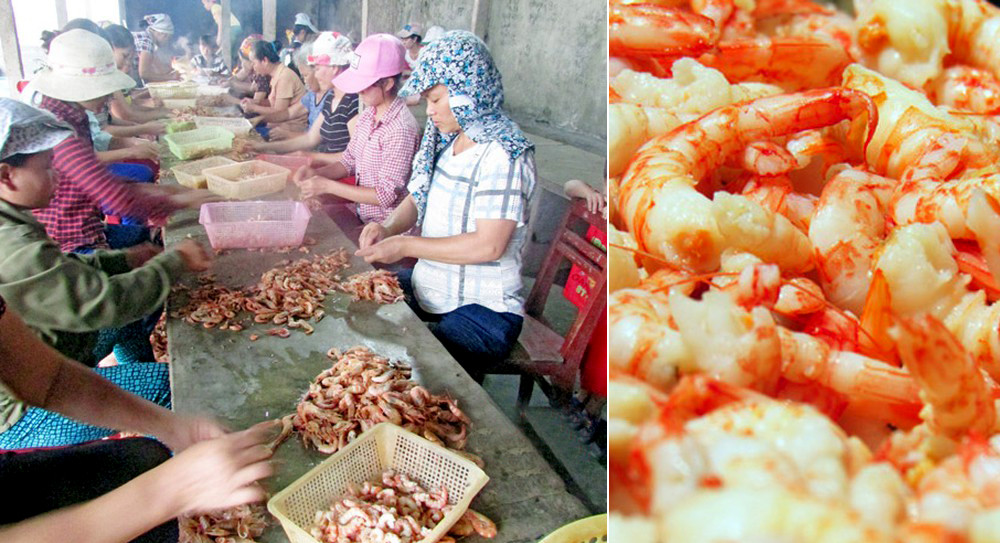 |
| Shrimp production in Dien Chau. Photo: Document |
When the province implemented the OCOP Project, we identified this as an opportunity for Dien Chau shrimp processing industry to improve product quality by investing in modern dryers, meeting technological requirements, and solving the problem of fragmented and backward production. From there, we hope that Dien Chau shrimp products can be exported abroad.
* Ms. VI THI VUI - Head of the cooking team of Khe Ran village, Con Cuong district.
 |
Our village has 160 households of Thai ethnic group. Since 2016, our village has been one of the villages that has built a community tourism model and been recognized by UNESCO. Currently, our community tourism group has more than 20 members. By participating in this model, we see that in addition to economic benefits, we also participate in preserving stilt houses, maintaining long-standing traditional lifestyles, costumes and cuisine of the ethnic group.
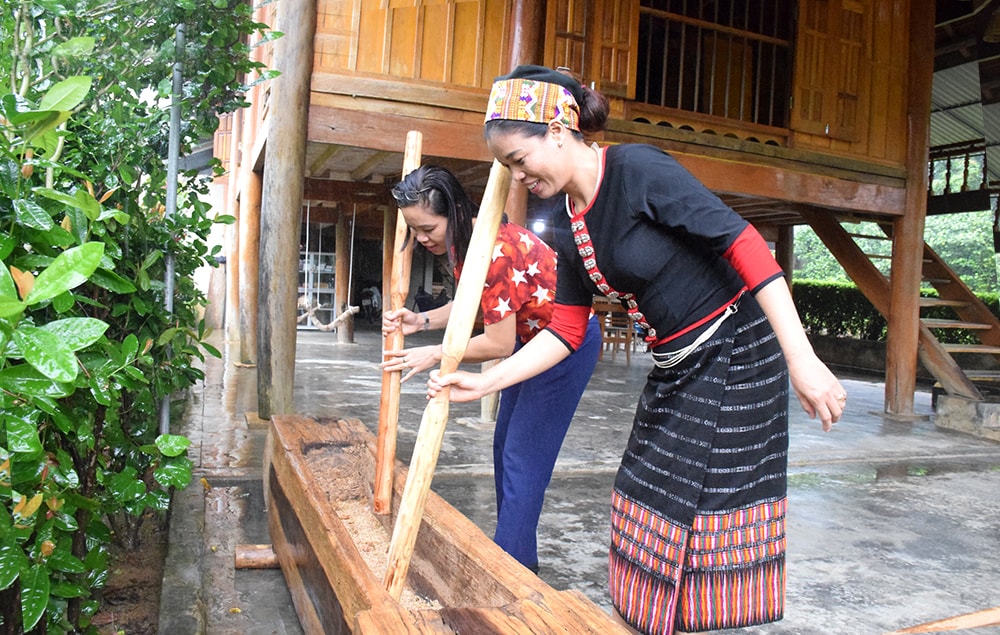 |
| Carving is a Thai cultural feature being preserved in the Yen community tourism village, Yen Khe commune (Con Cuong). Photo by Xuan Hoang |
After more than 3 years of developing the community tourism model, there are still difficulties that need investment attention such as: Supporting people to build sanitation facilities, training on how to do tourism, homestay, cooking to serve tourists, finding outlets for brocade weaving products, investing in booths to display products for sale to tourists...
We hope that the locality will have a mechanism to support people in building more effective community tourism villages.


